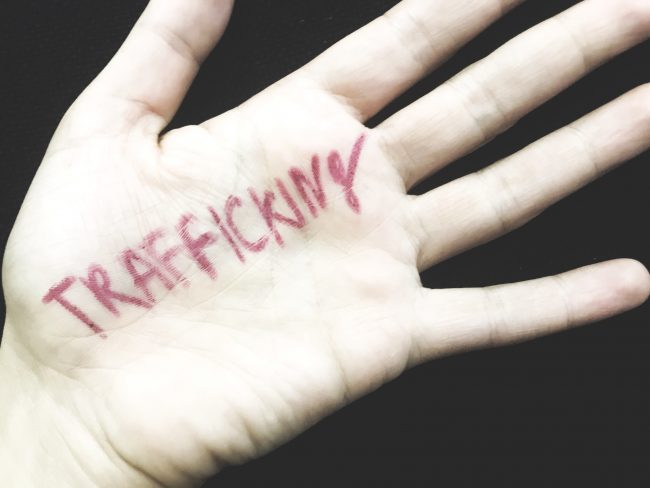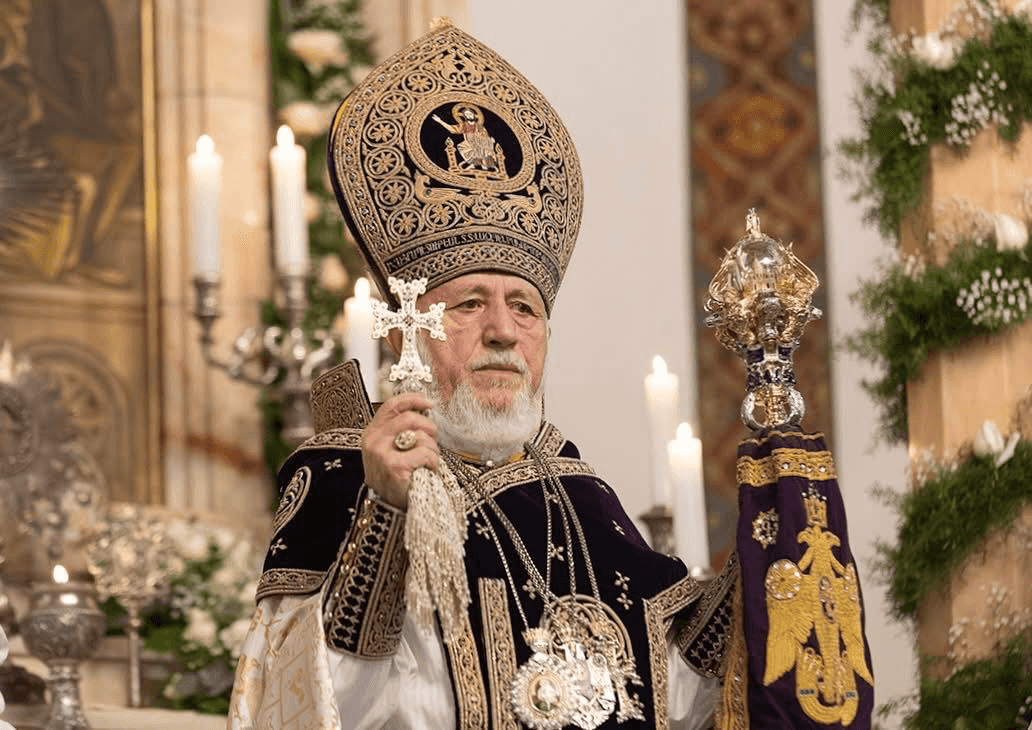

 Lured abroad with promises of love or money, victims of human trafficking from Armenia often find themselves forced into prostitution in Turkey and Dubai. For those who escape, the psychological scars of their ordeals are added to by a lack of acceptance and understanding from family and society back in Armenia.
Lured abroad with promises of love or money, victims of human trafficking from Armenia often find themselves forced into prostitution in Turkey and Dubai. For those who escape, the psychological scars of their ordeals are added to by a lack of acceptance and understanding from family and society back in Armenia.
In search of a new life
‘I worked as a nurse for five years and received ֏3,000 ($6) a day. I came to Yerevan from another region of Armenia to attend university, and stayed in the capital because I had a sick mother who I had to buy medicine for every month. My monthly salary of ֏90,000 ($180) was too little for me and my mother, and in 2012 I started looking for another job’, Lilit tells OC Media (her personal information has been changed at her request).
During her job search, one of Lilit’s acquaintances told her there was a vacancy for a nurse in Greece, offering her the chance to work abroad.
‘My acquaintance, who had been working abroad for many years, assured me that one of her acquaintances needed a nanny, and that they were a wonderful and educated family. I was offered a job taking care of a five-year-old child from an Armenian family — to feed her, take care of her, and to teach her to read and write in Armenian. I would be paid $1,000 a month.’
‘I was 27 at the time, tired of life and of myself, and I decided to go. My life was supposed to change, and I would earn more money for myself and my mother, and I also secretly dreamed of finding my true love in Greece. Five years ago I was still a dreamy romantic’, Lilit says, beginning her story.
Lilit and her acquaintance left for Istanbul together, planning to go on to Greece from there.
‘We went to Istanbul by bus.’ Lilit says. ‘There she took me to a guesthouse and she went to buy the tickets of Greece for us. She went and…’ Lilit’s voice breaks.
From that moment, Lilit’s life in captivity began. Her acquaintance did not buy tickets to Greece. She lied to Lilit, telling her the bag where she kept all their money and passports was stolen on the way. She offered Lilit a way out — do a small sexual favour for a familiar man who would then quickly help them regain their documents.
‘That little sexual favour, which I could hardly make myself do, became forced labour. I felt like a dirty cloth, which anyone could use and throw away. Once a week I saw my acquaintance, who came to my lodging to give me hope, meanly lying that she was also a captive like me, and that she was waiting for help as well, but she wasn’t a captive, she was the ringleader’, Lilit says.
The choice of the victim
According to a 2013 report from the US State Department, Armenia is recognised as fighting against the problem, meeting the minimum standards for eliminating trafficking. Nevertheless, Armenia is a country of origin of trafficking, i.e. there are many victims from Armenia being taken to other countries.
In recent years, cases of trafficked Armenians have been registered mainly in the United Arab Emirates (most often in Dubai) and in Turkey. In 2016, according to police reports, three cases of sexual exploitation of women were recorded, of which two were in Dubai and one in Armenia. In 2015, five cases were revealed, two of them in Turkey. Cases in 2014 were recorded both in Turkey and Dubai.
Viktoria Avakova, coordinator of the anti-trafficking programme at the United Methodist Committee On Relief (UMCOR), says traffickers deliberately target vulnerable women in Armenia.
‘The victims of trafficking are often women from socially vulnerable groups. They are mostly single, widowed, divorced, or abandoned women who do not have a regular source of income. They often have children and elderly people under their care’, she told OC Media.
‘Because of a lack of education, or more often, a lack of job opportunities, they are unable to earn money to live and support a family the normal way. Victims are often women who have been subjected to domestic violence trying to escape from their relatives at any cost. Traffickers target such women’, she said.
Since 2004, UMCOR has been assisting victims of trafficking, receiving state support for that purpose. The mission of the organisation is to provide victims with temporary shelters, to provide financial and legal assistance, medical and psychological assistance, and returning victims of trafficking to a normal life.
‘The traffickers work very delicately after choosing the victim to take her out of the country. For example, they promise them huge sums of money. The surprising thing is how the victims think that they can earn such a tremendous amount of money working as a waitress or a cleaner when they don’t even know the language. This is an education problem. There have also been cases where a successful woman was chosen as a victim and she was offered a job with fantastic conditions in a European country, being presented a legitimate looking contract. The woman found some provisions dubious and after discussing it with our lawyer, we found out that it was actually a trafficking attempt’, Avakova said.
Avakova also described a case when a woman consciously became a victim of trafficking. In this case, traffickers threatened to harm her family if she refused.
‘Former victims also often become traffickers themselves. For example, one pimp who was in Turkey and was in search of new girls but could not come to Armenia to collect them, chose the most resourceful of the victims at that moment and sent her to Armenia. In this case, the woman decided to accept the new rules of the game, not seeing the option of returning to normal life and thinking that she would finally start earning money’, Arzuman Harutyunyan, member of the working group at the Anti-Trafficking Council in Armenia, said.
Sinister marriage proposals
According to experts, women are often tricked with false marriage proposals. In Armenia, particularly in villages, it is considered shameful if a girl is still not married by the age of 25. Victims of trafficking are often women who have been reproached by relatives because of the ‘shame’ they have brought on their family, or just to escape from their villages. Many such women are ready to marry even under extreme circumstances.
‘They show the girl a photo, saying “this is my relative’s son, living in the US, you will marry him”, and so they take the girl with them. Can you imagine? Or they speak with a guy on Skype and later say that he is their “knight on a white horse” and they travel in an unknown direction. There have been such cases in our experience’, says Avakova.
An escape from slavery
It is mostly young women, aged 25–45, who appear in slavery.
Cases of women exposed to sexual exploitation are revealed in many ways, mostly by law enforcement agencies. But the problem is complicated when victims are found in Turkey, with which Armenia does not have diplomatic relations due to unresolved issues around the Armenian Genocide and Armenia’s conflict with Azerbaijan over Nagorno-Karabakh.
‘There have been cases in Turkey when our girls survived in incredible situations, for example, a client saved one of our girls when, after a regular visit, the woman, without any reason told him about her life: the client decided to help the victim and reported it to the police’, Harutyunyan said.
‘One woman wrote about being in slavery on a piece of paper and threw the paper out of the window: a random passer-by found it and handed it to police. There was also a case when a woman was taken to another place by car, and she wrote the word ‘trafficking’ on the palm of her hand with lipstick and when the car stopped at traffic lights, she touched the window with her palm to alert a nearby passersby that she was being held’, Harutyunyan said.
Harutyunyan also heads media organisation the Audiovisual Journalistic Association. The organisation tries to raise public awareness about trafficking. For this purpose, they publish books and brochures and shoot short videos.
‘Our society is quite well informed, as evidenced by surveys, but anyway, people still take this step. Money is great bait’, Harutyunyan said.
The trauma
‘I didn’t escape, I was sent back when my body was no longer of use, I was already a burden there and they were convinced I wouldn’t tell anyone the life I had to live abroad. It would mean putting an end to my life by my own hand, to commit suicide. I am disgusted with my body, how can anyone like it and understand me?’, says Lilit, who has now returned to Yerevan and has been working as a cleaner for more than a year. She says she considers herself a half-dead person, who will never be accepted by society, will never get married, and will just carry on her physical existence.
Like Lilit, almost all victims end up with psychological problems. They often scorned by relatives when they return, who often refuse to accept these woman who barely survived slavery.
‘The opinion of society is very important. Very often you hear questions like “who told her to go? who made her? why did she go? she knew well that she would be a prostitute”. In this case, the man of the house rebels: “my wife or daughter cannot be immoral and has no place in my house” ’, says Harutyunyan.
‘What’s painful is that when a woman is going to leave, she is often encouraged by a relative who is also inspired by the idea of having a lot of money. There have been sad cases when the husband himself encouraged his wife to take that step. There was also one severe case when a mother took her daughter to Turkey. Very often victims contract sexually transmitted diseases, but it’s easier to treat them physically than psychologically. There are women who after surviving, voluntarily return to their old lives [of being trafficked], simply finding no alternative’, Avakova said.
According to the US State Department report, neighbouring Georgia is also working to combat trafficking, along with Armenia. Azerbaijan, the report says, has yet to take steps to meet the minimum requirements of the US State Department’s Trafficking Victims Protection Act. Unlike Armenia, which is largely a country of origin for trafficking, and sometimes a target country, Georgia and Azerbaijan are mainly transit countries.









